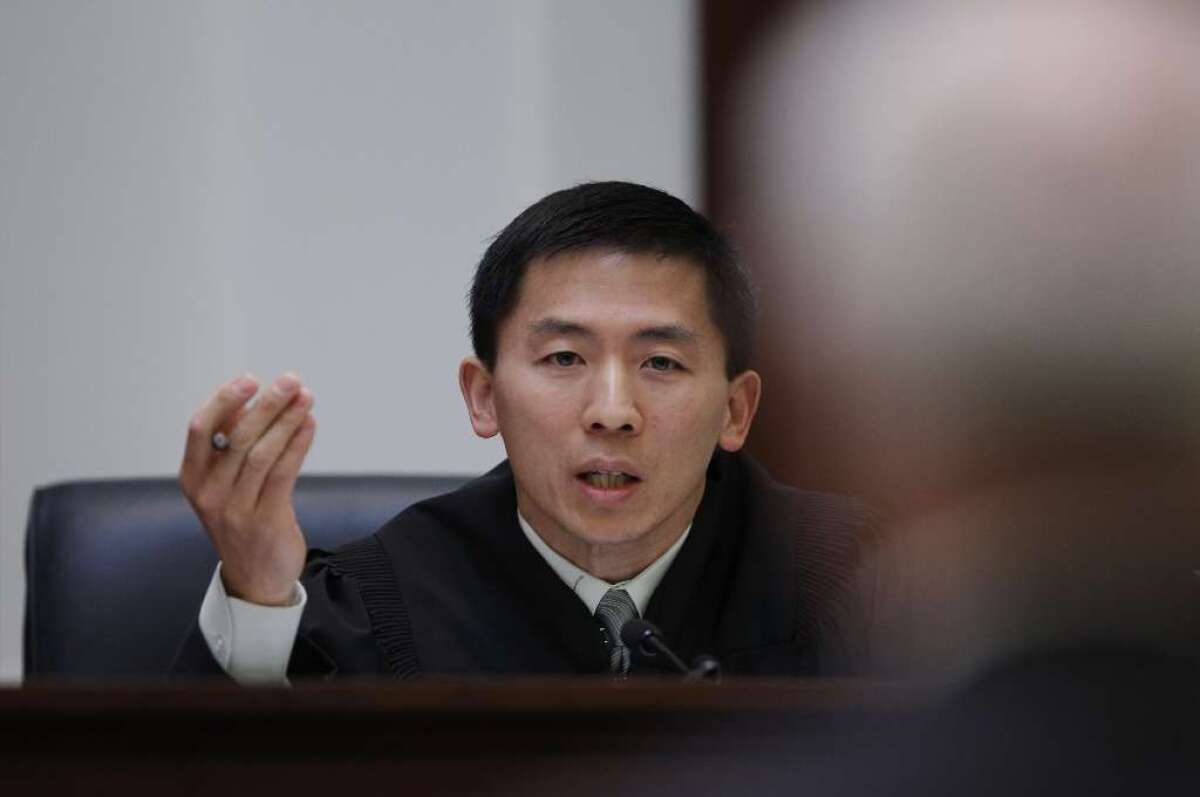Endorsement: Strong reasons to retain state justices

- Share via
California voters will see the names of three state Supreme Court justices and numerous Court of Appeal justices on their Nov. 4 ballots, a result of the state’s hybrid system for keeping politics to a minimum in the court system while still granting the people a measure of oversight of their judges. Unlike trial court elections, in which voters choose among candidates running against one another, elections for appellate justices are not contested. Voters simply vote yes to retain the justices, no to remove them.
That’s because California’s system properly seeks to shield justices from political pressure, to allow them to make their rulings based solely on their understanding of the law without deference to the governor who appointed them or to whatever political movement holds sway at election time; but it still accords the voters a kind of arm’s-length oversight, allowing them to keep or remove their justices every 12 years. Voters do sometimes exercise their clout, as they did in the 1980s with Chief Justice Rose Bird and two other justices in the belief that the court was defying the law on the death penalty. But they should do so cautiously and sparingly. They do not have the power — nor should they — to choose who would replace them. The governor appoints, a special panel confirms and the voters decide whether to retain.
The Supreme Court justices up for retention in November include two appointed by Gov. Jerry Brown in his current term. Stanford law professor and former U.S. Treasury official Mariano-Florentino Cuéllar was appointed and confirmed this year and will take office in January if he receives the voters’ approval, and there is little reason not to grant it. Cuéllar is a solid choice with a thoughtful and academic bent well-suited to the state’s high court.
Goodwin Liu is already serving on the court, having been appointed and confirmed in 2011. Under the state Constitution, like all justices, he comes up for retention in the first gubernatorial election after his appointment.
Liu, like Cuéllar, is a liberal academic, although a Republican filibuster in the U.S. Senate scuttled his appointment by President Obama to the U.S. 9th Circuit Court of Appeals. Liu became better known to some Californians in recent weeks because he authored a statement attached to a state Supreme Court order removing Proposition 49 from the ballot. That was the advisory measure calling for a constitutional amendment to overturn Citizens United vs. Federal Election Commission, the controversial campaign finance decision by those other justices — the ones on the U.S. Supreme Court.
It may seem odd that a state justice formerly blocked by politicians on the right should write an opinion that so antagonized people on the left. But good justices — and Liu is one of them — routinely write controversial opinions that reach their conclusions based on the law as written and understood by the entire court, and not on a single justice’s ideology. Liu, like Cuéllar, should be retained.
So should Justice Kathryn Mickle Werdegar, who has served on the court since her appointment in 1994 by Gov. Pete Wilson. Voters already retained Werdegar in 2002, but justices’ names come around again every 12 years and she is up for approval once again.
In addition to the three Supreme Court justices, voters will also be asked to vote on the retention of about a third of the 99 justices on the Court of Appeal. That court — the intermediate level between the trial courts and the Supreme Court — is divided into geographic districts, and voters vet only the justices in the districts in which they live.
In Los Angeles, voters will see 11 Court of Appeal justices serving in various divisions of the 2nd District, which handles appeals from Los Angeles, Ventura, Santa Barbara and San Luis Obispo counties. Three were appointed this year by Brown, three by Gov. Arnold Schwarzenegger, three by Gov. Gray Davis, two by Gov. George Deukmejian.
As in all judicial elections, the voters’ chief challenge is finding enough information about the candidates to make wise choices. How can they know how well Paul A. Turner, for example, has performed on the bench since his appointment in 1990, or how to assess Audrey B. Collins, who took her seat earlier this year?
There are two answers. First, they can check the records of the Commission on Judicial Performance and ask the opinions of attorneys who argue their cases at the Court of Appeal and the Supreme Court. Voters will find that all 14 justices have spotless records and that they are held in high regard for their intellect and fairness. There have been California jurists in the past who were poor appointments to the Court of Appeal, even to the Supreme Court; but the justices on this year’s ballot are not among them.
And second, voters should keep in mind their role in judicial retention elections. Other states have more overtly political systems in which justices campaign against challengers for election and raise money from people who are likely to appear before them. They then try — or perhaps they don’t — to forget political allegiances and contributions when it is time to make their rulings. Even California’s retention system could conceivably cause some justices to consider the political ramifications of their rulings; but it’s hard to think of a more secure tenure than a 12-year term between elections (unless it is the federal model of lifetime terms following presidential appointments and Senate confirmation).
Follow the Opinion section on Twitter @latimesopinion
More to Read
A cure for the common opinion
Get thought-provoking perspectives with our weekly newsletter.
You may occasionally receive promotional content from the Los Angeles Times.









